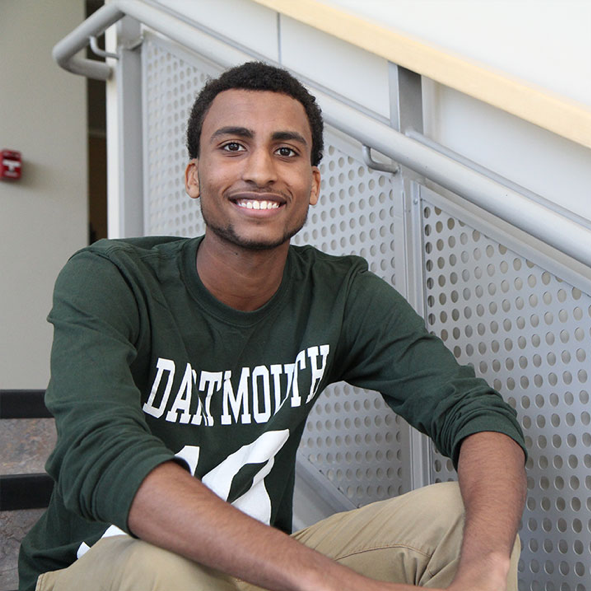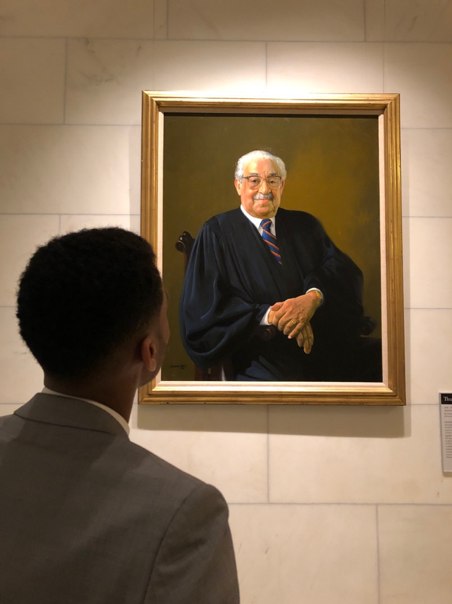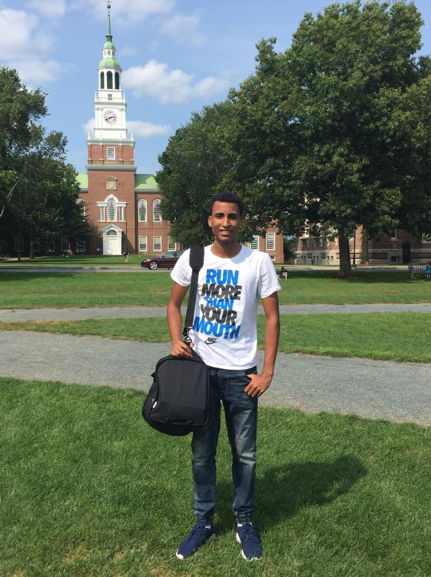Scholar Voices: My Journey to becoming a Dartmouth College Grad

With graduation on the horizon, I cannot help but reflect on my personal growth over the last four years. College has definitely served as a formative experience in my life – one where I’ve had several opportunities to critically engage with my identity.
In Michelle Obama’s memoir Becoming, she writes about the power in finding one’s voice. “There’s power in allowing yourself to be known and heard, in owning your unique story, in using your authentic voice,” she writes. As a first-generation, low-income college student, it’s often difficult to truly express yourself in an institution such as Dartmouth College. It is easy to have sentiments of self-doubt or what is commonly referred to as “imposter” syndrome. Given these circumstances, I often found it difficult to effectively use my voice when I first arrived in Hanover, New Hampshire.
During the fall of my freshman year I dreaded a discussion-based seminar class because I did not feel comfortable sharing my thoughts with my peers. I had a deep-rooted insecurity that if I said the wrong thing I would be exposed for my ignorance, which reinforced my aforementioned feelings of imposter syndrome. After receiving grades that I was not particularly satisfied with, I decided to set up a meeting with my first-year advisor. The meeting was tremendously beneficial. He helped me realize that I brought unique insight to the classroom – a diverse point of view that could shift the dialogue in these spaces. He told me it would be a tremendous loss for the institution if I didn’t believe in my abilities and own my experiences. If it wasn’t for this honest conversation from a trusted advisor, my experience at Dartmouth would not have been transformational as it was.

Growing up in the inner-city of Boston, I was surrounded by individuals who came from a similar socio-economic background as my own. I never had to think too much about my identity because it was all I had known. Through the sacrifices of my parents, I developed a strong work ethic and held onto the hope in the possibilities of this country. Fortunately, I saw my efforts pay off as I was accepted into Dartmouth.
However, once I arrived on campus I was appalled by the amount of privilege that surrounded me. I was now forced to confront social issues that I was not previously accustomed to. I saw a large portion of my peers going to exotic spring break destinations while others were struggling to make ends meet during breaks because they couldn’t afford to go back home and dining halls were closed at these times.
Privilege became more apparent in subtle ways too. During the harsh Hanover winters, some peers had the luxury to stay cozy in their expensive Canada Goose coats while others had little choice but to layer up – hoping that spring came sooner. Stories like these are not uncommon for first-generation, low-income students at institutions like Dartmouth. While students might be in close proximity to privilege, these amenities are not equally distributed amongst the student body.

I’m thankful for the Earl Woods Scholar Program for helping me navigate complicated elements of my life at Dartmouth. More importantly, for showing me the importance of community. Every year I’ve been granted with a unique opportunity to gather with some of the brightest individuals across the nation, many of whom share similar backgrounds, to participate in meaningful dialogue and activities.
Winter Workshops, a yearly, three-day gathering of Earl Woods Scholars hosted by TGR Foundation in Anaheim, California, have been a highlight in my college experience because they remind me of the beauty in vulnerability and the willingness to know others. Moreover, whenever I have the opportunity to share my personal journey, I feel empowered by the immense support from my peers. In this setting, I’ve been able to feel comfortable talking about my most heavy thoughts and issues.
I recently attended my last Winter Workshop in January and feel most empowered to effect change in the world. As I look into the future, I’m nervous but excited for what lies ahead. I’m graduating in June with a Bachelor of Arts degree in Sociology modified with Human-Centered Design and a minor in African and African American Studies.
I’m passionate about tackling conceptual social problems, empathizing with the needs of individuals and developing ways to serve these needs in an innovative manner. I plan to enter the field of product management with an interest in using technology to connect people and improve the lives of as many as possible.
I’ve always been an ambitious individual – seeking challenges that would give me the best opportunity to grow. I’m humbled by all the privileges that I’ve been afforded in my own life. Now I hope to use these privileges to promote the common good. I’ve never been set on one particular path to having a meaningful impact, but I know that I want to return to Boston and invest into the community that made me who I am today.
Redefining what it means to be a champion.


